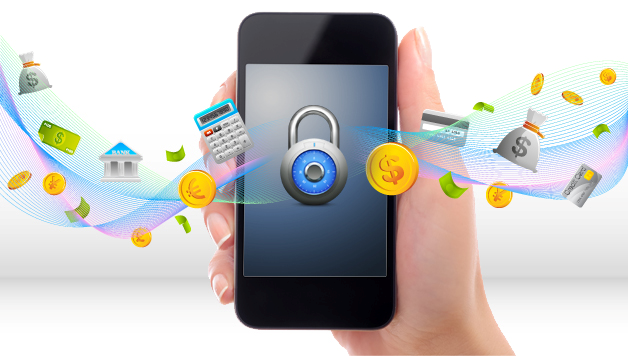Almost 80% of the world has a smartphone. These portable devices are widely used because of how easy they are. On the other hand, cybercriminals also love how unprotected they can be. Mobile devices present extraordinary challenges for network security. Top cyber threats when it comes to smartphones include malicious mobile apps, phishing scams, data leakage, spyware, and unsecured Wi-Fi networks.
Companies also have to consider devices with important company information that can be lost or stolen. To reduce the risk and mitigate any potential breach, companies and team members must take a preventative approach.
Some benefits of mobile device security include:
- Regulatory compliance
- Security policy enforcement
- Remote control of device updates
- Application control
- Automated device registration
- Data backup
Regulatory compliance should be a top concern for all businesses, whether it be large, medium or small organizations. Now that mobile devices are commonplace in business, compliance requirements are increasingly applied. Many organizations require employees to use mobile device security solutions to protect company data.
There are many benefits of using mobile device security solutions, such as:
- Improved security of company data: Mobile device security solutions can protect company data from unauthorized access and theft.
- Enhanced compliance with regulations: Using mobile device security solutions ensures organizations comply with applicable regulations.
- Reduced risk of data breaches: Mobile device security solutions reduce the risk of data breaches and the associated costs.
- Improved competitive advantage: Mobile device security solutions give organizations a competitive advantage by protecting your data and helping you stay compliant.
- Increased ROI: Mobile device security solutions increase an organization’s ROI return by improving employee productivity, compliance, and customer satisfaction.
Mobile device security is vital for any organization. Tap into the benefits of mobile device security solutions to protect data, improve productivity, and stay in compliance.
The ins and outs of mobile device security work
Companies must take a multi-layered approach to mobile cybersecurity. The first step is to create clear policies and processes that are easy to enforce. Communicate which devices can be used, the allowed OS versions, what can be accessed by the employee on a company phone, whether IT can be deployed to wipe a device remotely, and the frequency of updating a password.
Password security is a stellar way to protect all devices. <link to password article> Most data hacks can be attributed to weak passwords. Unfortunately, many use the same weak password for mobile devices, emails, and other accounts. Employers should make it mandatory for team members to have a unique password for every company account.
Biometrics
Mobile access security has turned to biometrics as an alternative to passwords. Face, fingerprint, voice and iris recognition can be harnessed for authentication purposes. Multiple biometric authentication methods are now available on smartphones and are easy for workers to set up and use.
Public Wi-Fi
It is tempting to use public Wi-Fi, however, mobile devices are only as safe as the network that transmits their data. The use of public Wi-Fi networks should be banned. They make it entirely too easy for cybercriminals to breach a mobile device, access the network, and access data.
VPN
A virtual private network allows a private network to cross a public network while keeping data safe. A VPN can act as a private network for any device connected to it and users can send and receive data across networks. This allows remote workers and branch offices to access applications and resources securely.
Apps
Browsing the latest apps can be interesting. Malicious apps cater to what is popular for work or fun and are easy to download and cybercriminals use these apps to gain access to a company’s network and data. Companies should educate team members on the dangers of apps and can ban downloading of specific apps.
Enterprise Mobile Management platform
An Enterprise Mobile Management platform is a mobile device security solution that helps businesses manage and protect their data. It provides a central location for businesses to manage their mobile devices, applications, and data. It also allows businesses to stay compliant with regulations by controlling access to company data.
Mobile data security monitors and protects companies from malicious attacks targeting data. The IT team can remotely manage users and their devices when paired with an EMM platform and other security approaches. Unauthorized users and applications can be quickly disabled. EMMs allow the IT team to remotely clear data from a lost or stolen device.
Additionally, an EMM platform can help businesses improve employee productivity by providing a way to access company data and applications. Finally, it can help businesses reduce the risk of data breaches by allowing the IT team to control access to company data.
Email security
Cybercriminals love email. They use it to spread ransomware and other malware. To prevent and combat attacks, businesses should have cutting-edge security to quickly avert data loss and protect important information in transit with end-to-end encryption.
Endpoint protection
Remote workers may inadvertently put their company at risk when their mobile devices remotely access the company’s networks. Endpoint security protects companies via security standards. This type of security allows IT administrators to detect threats in advance. Operation functions should be monitored, and there should be a multitude of data backup strategies.
Secure web gateway
Enforcing a company’s security policies is a must in the cyber age, with many phishing and malware breaches happening 24/7. Cloud security is particularly at risk. A secure web gateway can detect a cyber attack on one location and protect the office branches.
Cloud access security broker
A tool called an access security broker enforces cyber security, compliance, and governance policies between cloud service consumers and providers. Companies can take their security to another level, from their on-premises infrastructure to the cloud.
Two common mobile device attacks
- SMiShing — Harnessing the implied trust of SMS or texting, a SMiShing attack sends fraudulent text messages or links. Cybercriminals may also call to get credit card information and account information. A link may be sent asking the user to download malware that infects the device.
- Wardriving — Entering access points is the goal of war driving. Cybercriminals drive around in cars looking for a free Wi-Fi connection through which to score a wealth of information.
Making mobile devices secure is not a simple task, but it should be a high priority for any enterprise. To combat the growing cyber-attack threat, companies must continually audit their mobile security solutions and consider new security measures as they become available.
Cybercriminals have gotten very smart, and the only way to protect data for public and private use is to be strategic and keep up to date via upskilling.
ThriveDX proudly partners with top-tier educational institutions, global enterprises, and government agencies to offer innovative professional development programs and equip the global workforce with the digital skills they need to thrive in life-long, digital technology careers. Learn more about us at https://thrivedx.com/


